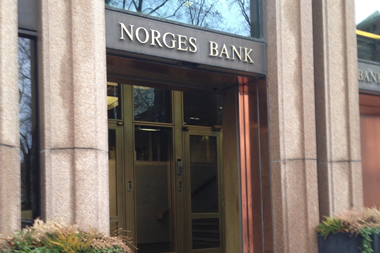The UN-backed Principles for Responsible Investment (PRI) has formally released its new three-year strategy, proceeding without adopting a new purpose statement but announcing plans to review the organisation’s mission.
The strategy covers the period 2021-2024. As per the draft version the PRI consulted on in the autumn, it has as its theme “Building a bridge between financial risk and real-world outcomes”.
According to a document on the strategy from the PRI board, the aim is to support signatories to “recognise and understand the interdependencies between financial markets and real-world outcomes, based on an investor perspective”.
Setting out its response to the formal consultation on the strategy, the board said that overall, respondents – 16% of signatories, above the industry average “for these types of consultations” – were supportive of the proposed strategy.
However, it also acknowledged that there were concerns about a “perceived mission (and cultural) shift away from the investor perspective”.
Referring to a purpose statement it had drafted as part of the strategy discussions, it said some signatories had expressed concern the statement “could signal or enable ‘mission drift’, with a purpose statement overlaying the existing mission and six Principles”.
It said the board’s intention had been to provide a short version of the existing mandate without any more substantive change, but that it “recognises the sensitivities around any changes to statements regarding the purpose of the PRI”.
It would therefore not adopt the proposed purpose statement at this time, it said.
However, the board said it considered it was a good time to review the mission statement with signatories and would start consulting with them on the mission and purpose later this year.
Based on feedback from the consultation, possible changes could be put to a signatory vote in 2022, the board said.
Any change to the mission, embedded within the Articles, requires the approval of a simple majority of signatories and a simple majority of asset owner signatories, it noted.
Reasons cited by the board for it being a good time to review the mission statement included the adoption of the Paris Agreement and Sustainable Development Goals, that “terminology is different”, and that investor expectations and practices are evolving.
The criticisms and concerns described by the board are reminiscent of those expressed by Norges Bank Investment Management, which manages Norway’s giant sovereign wealth fund. In its response to the consultation on the three-year strategy it said the change being proposed was so far-reaching it needed to be voted on by signatories.
Carlos Joly, fellow of the Cambridge Institute for Sustainability Leadership at Cambridge University and chair of the expert group that drafted the actual Principles for Responsible Investment, said NBIM was “plain wrong” with its comments.
Guarding credibility
According to the PRI, the 2021-2024 strategy will see it remaining a “big tent” organisation, open to all potential signatories without there being a hurdle to entry. The board indicated it still supported this approach, saying it was ”easy to improve average standards by delisting poor performers, but that doesn’t necessarily improve responsible investment”.
It said the risk of greenwashing was inherent in the approach the PRI was taking, and that it had identified greenwashing as the biggest risk to the credibility of responsible investment and the PRI itself.
”We will continue to move the needle on what it means to be a signatory, celebrating leadership and raising the bar both at the bottom and the top,” wrote Martin Skancke and Fiona Reynolds, chair and CEO of the PRI, on the PRI website.
”We will strengthen our minimum requirements and complete the reform of the reporting and assessment framework, aiming to improve practice over time.”
The PRI is piloting a new reporting framework this year, with the model consisting of a process-focused core component of close-ended questions that will be mandatory and assessed, and a more advanced, open-ended component of process- and outcome-focused questions that will be voluntary and not assessed.
Signatory feedback on the revised framework is to be reviewed by the board, which will formally report back to signatories on the outcomes of the pilot review before the 2022 reporting period.
‘What success looks like’
According to the official new three-year strategic plan, the PRI considers that “if successful in the vision we have set out […], we can expect by 2024 to see investors consider, in their investment decision-making, the impact they have on the real economy and the world in which their beneficiaries live and plan to retire”.
It continued: “ESG will be integrated in financial policy and regulation in core markets. Legal frameworks for investing for impact will be in place in several markets. Leading financial systems will align incentives, behaviours and policy with sustainability. Investors will use international human rights frameworks in their investment activities and align with a 1.5°C pathway, working towards net zero by 2050. Progress will be underway towards a global sustainability reporting system for investors and corporations.”








